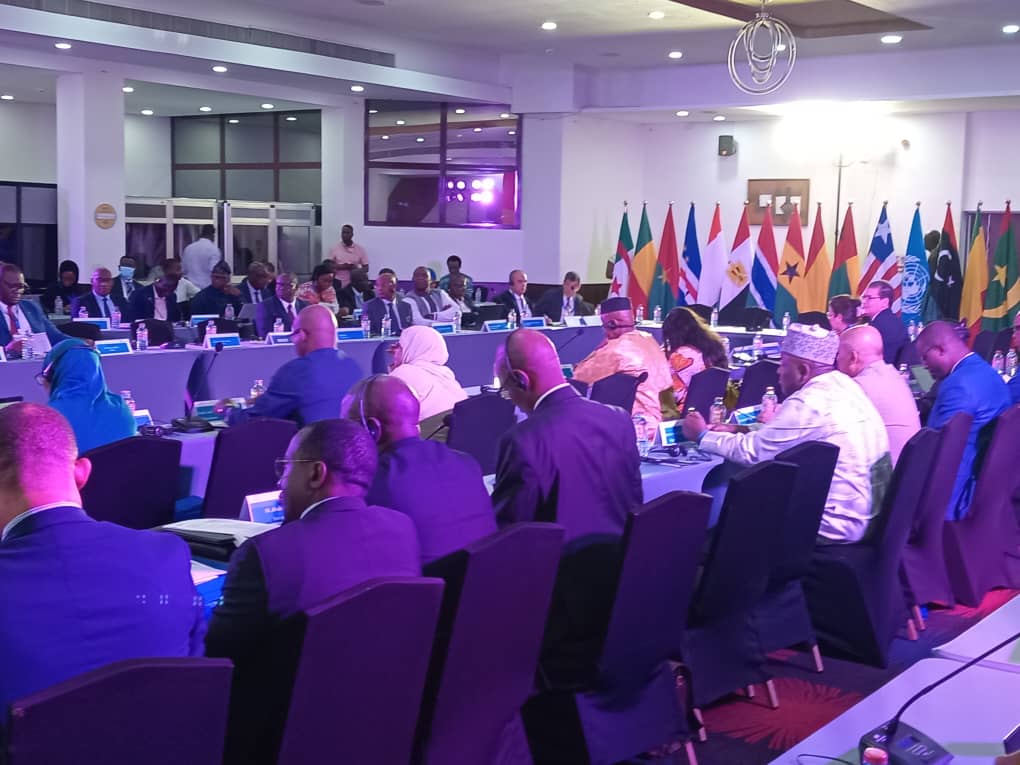By Maxwell Awumah
Accra, Nov 4, GNA – The Adhoc expert group meeting, which preceded the second Joint Inter-governmental Committee of Senior Officials and Experts (ICSOE) for North and West Africa, a flagship initiative of UNECA has given some recommendations after their meeting on Wednesday in Accra.
The Adhoc expert group meeting ICSOE 2023, was on the theme: “Transition to Renewable Resources for Energy and Food Security in North and West Africa.”
The Adhoc expert group recommended after a day’s dialogue for the promotion of the private sector to invest as their role was pivotal in the sustainable energy transition, which is identified as requiring pragmatic and country-specific solutions.
It encouraged the development of a regional value chain for renewable energies, fostering collaboration and expertise-sharing among neighbouring countries could serve as a model.
It called to promote and facilitate green financing as a critical factor for sustainable energy solutions.
It recommended gender-inclusive climate change adaptation, recognized and addressed the vulnerability of women in the face of climate change to ensure that they benefit from climate change adaptation plans.
The recommendation urged the management of gas and oil revenue with the continent creating mechanisms for mobilising oil revenues to finance the transition as well as addressed the challenges and difficulties associated with accessing the Green Climate Fund, exploring different models and strategies.
It suggested energy transition in Africa should capitalize on the significant opportunities related to energy access, job creation, and industrial development, leveraging the continent’s abundant renewable energy resources, which would necessitate power sector reforms and the harmonization of frameworks, among other essential actions.
It encouraged the use of new technologies, including artificial intelligence and digitalization, to achieve in near and medium term at least 50 per cent renewable energy mix.
On Food Security and Value Chains, the meeting called for promotion and development of sustainable raw materials value chain, fostering sustainable and responsible practices.
It called to promote value chains on sectors of vital importance for population’s resilience and income generation, in particular cotton, meat, livestock, oilseeds and

encouraged trade openness and intra-regional trade through removal of non-tariff barriers to enhance food production and security;
It suggested enhanced use of Technology, including artificial intelligence to prevent and mitigate food crisis, as well as to promote smart irrigation systems and prioritise sustainable agricultural production including cereal production in development policies by addressing the bottlenecks in food supply due to climate change;
It urged the promotion of a change in mind-set from ad-hoc, crisis response-driven to a deliberate, preventive approach in shifting from short-term and output-based interventions to structural policies enhancing sustainable food and nutrition systems, in particular, regarding government transfer and subsidies policies.
It asked to promote trade and consumption of domestic production to enhance agricultural transformation and food security as well as enhance energy supply and access to promote food production and transformation and regional value chains.
The Conference called for adoption of new policies to strengthen water management, in particular irrigation policy to increase agricultural productivity and the supply of agricultural products in general and foodstuffs.
It urged capitalisation on good practices and countries experience in increasing agricultural and cereal yields and productivity, in particular by intensifying the rate of fertilizer use per hectare of arable land;
It encouraged bi-directional analysis on effect between food system and macroeconomic framework.
Participants examined the impact of climate change in both sub-regions, discussed practical measures for countries to adapt and safeguard their energy and food security, while advancing their development and made some important recommendations.
GNA